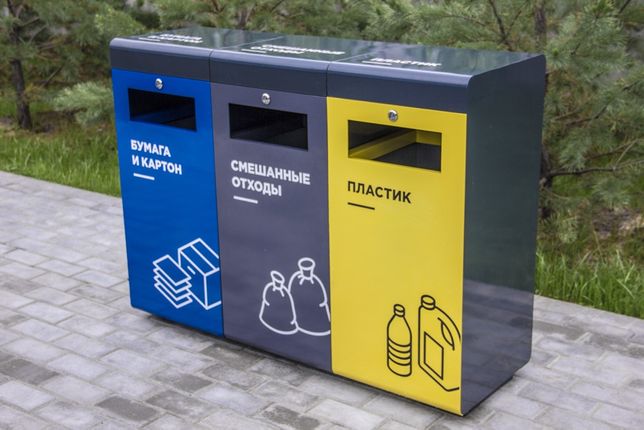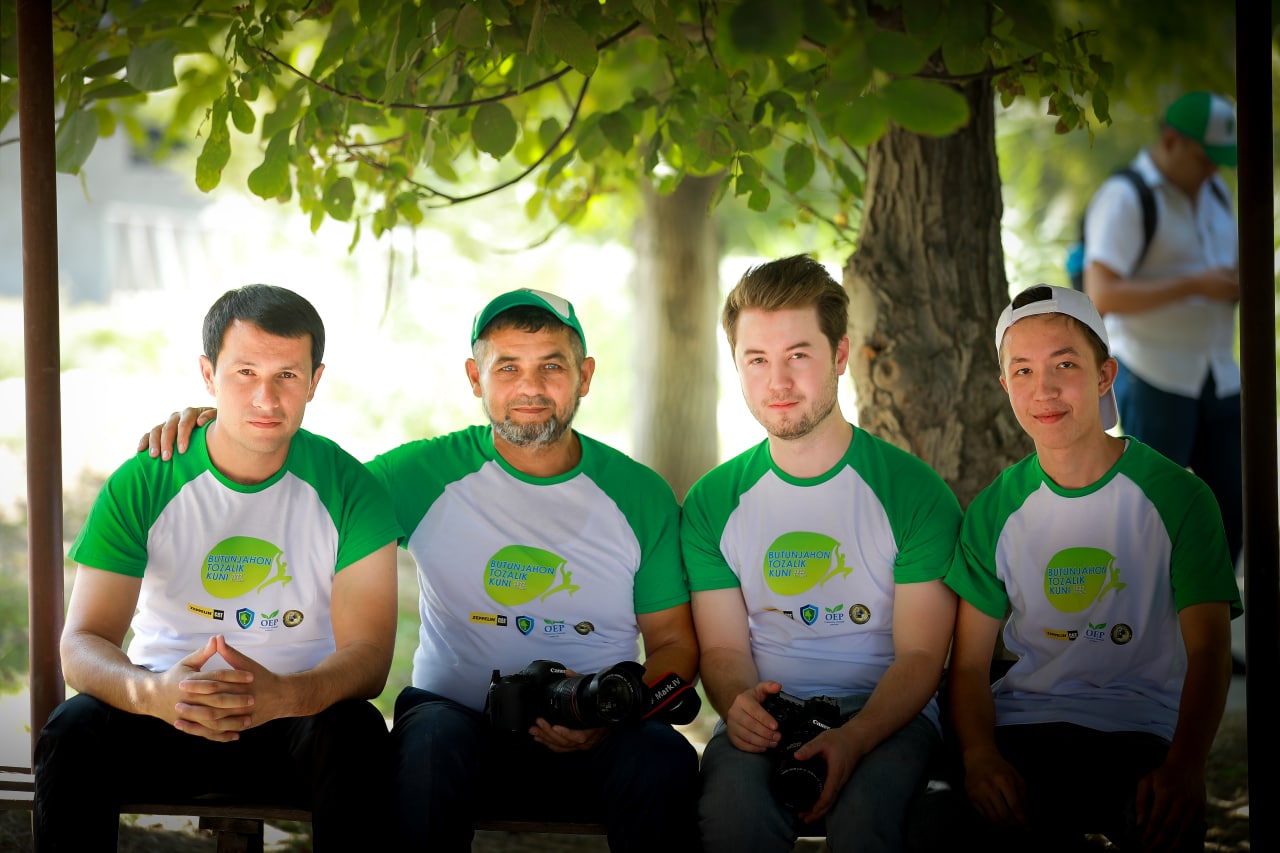Human society and nature are interconnected. Without recognizing this, there can be no progress. However, in recent years, the increasing volume and speed of using natural resources has led to a growing impact of humans on nature. This, in turn, leads to a number of problems. In particular, in Uzbekistan, as in many other countries, issues related to solid waste management are becoming increasingly relevant.
The use of disposable plastic bags has led to an increase in the production of non-biodegradable waste, which is harmful to the environment. Urbanization also contributes to waste production, with cities producing more waste than rural areas. The problem of recycling and disposal of solid waste remains unresolved in many cities of the country. On average, each person in Uzbekistan produces 240-328.5 kg of solid waste per year.
Ensuring comfortable living conditions for people is associated with the introduction of new technologies aimed at reducing waste. For example, the low cost of plastic bags that are used only once makes them valuable for environmental protection. After being buried in the ground, their chemical and physical properties change, and the number of living macro and microorganisms in the soil decreases, disrupting fertility. In addition, they contribute to the growth of harmful bacteria, helminths and other organisms that can cause disease.
Humanity has created accumulations that do not decompose biologically or biokinetically. They include various types of waste, storage facilities for moisture, rubber, polyester, synthetic polymers, and hazardous materials. Over a long period of time, all these chemical and biochemical products break down and release harmful substances into the environment and human life.
Currently, the recycling of all types of waste is only practiced in a few countries as a traditional practice. However, the need for their use is becoming increasingly important due to economic, social, ecological and energy considerations. The chemical breakdown of waste in landfills releases carbon dioxide and methane, which contributes to global warming and poses a threat to our planet.
Ensuring the increase in the comfort of human living comes with the task of introducing new technologies into modern life. For example, the low cost of single-use plastic packaging materials has the opposite cost for environmental protection. As a result, after falling into the soil, it changes its chemical and physical properties and reduces the number of living macro- and micro-organisms in the soil and destroys its fertility. Together with pollutants, disease-causing bacteria, helminth eggs and other harmful organisms often enter the lower layers of the soil.
As a novelty, mankind invented biologically and biochemically non-degradable compounds. They include various packaging materials, containers for storing liquids, rubber, varnish, synthetic polymers, detergents, paints. In a long-term process, all such chemical and biochemical products decompose, releasing harmful substances for the environment and human life.
Currently, the recycling of all types of waste is becoming a traditional practice in only a few countries, but the need to use it is important and has economic-social, environmental and, at the same time, energy importance. Chemical decomposition of waste underground in landfills releases carbon dioxide and methane into the environment, which trap heat in the atmosphere and create a greenhouse effect that threatens our planet.

A number of works are also being carried out in our country to find solutions to such pressing environmental problems. In particular, In order to ensure the implementation of the decree of the president of the Republic of Uzbekistan dated April 17, 2019 "on approval of the strategy for the implementation of solid household waste work in the Republic of Uzbekistan for the period 2019-2028"and the decree of the Cabinet of Ministers dated October 2, 2018 "on measures to further improve the effectiveness of work in, In the cross section of the regions of yashnabad districts, the city of Chirchik, Tashkent region, research works are being carried out aimed at increasing the ecological culture of residents and legal entities in the sorting of solid household waste.
As you know, sorting solid household waste is the first step in cleaning our planet from waste. Over the next 20 years, the volume of packaging products increased by 246 times. When the waste is evenly distributed throughout the globe, it forms a layer 2 cm thick.
Imagine that a can of canned food can decompose in the soil for 8-10 years. Plastic bottles, on the other hand, rot in 150 years when sunlight falls on them, and in 400 years if under the soil, it will take at least 400 years for plastic bags to rot. Aluminum cans of drinks such as" Coca-Cola"," Fanta " will disappear in 500 years. Glass jars have been lying for thousands of years. Currently, the most relevant and rational method of the problem is the widespread use of waste as a conscious raw material. We will save our planet from more pollution only by sorting and processing recyclable paper cardboard, polymers, metal, outdated household appliances, clothes, Mercury light bulbs, thermometers, batteries. Let's not forget that the component of solid household waste is 60-80% recyclable materials.
Separate collection of household waste in Germany dates back to the late 1980s, while since 2015 a single system of selective collection of waste has been working in this country. Germans collect biomass, paper, glass, metals and plastics separately from household waste. For this type of waste, special colored containers are installed. For example, blue – for paper products (newspapers, magazines, cardboard boxes); green-for organic waste. Pharmacies accept expired medicines, stores have collection points for old batteries, and in Germany 66% of household waste is processed.
Japan is one of the leaders in the world in plastic processing, and under the law adopted in 1997 in the Sunflower country, it is mandatory to distinguish polymers in industry and household from other categories of waste. For this reason, the proportion of plastic used in production ranges from 39% (1996).) To 83% (2014.) increased. Industrial waste is used there as a building material. Artificial islands built from decomposed industrial waste have been built at Tyubu, an international airport near Nagoya city, and Kansai (Osaka).
The technology of "Ava-tread" and the Japanese company "Super Faiths" allows the processing of pampers and diapers into fuel briquettes, which can be used both in boilers and in private heating systems. In the United States, there are cities where up to 80% of waste is recycled, such as San Francisco, for example. Foreign experience shows that in the case of effective incentives that affect all participants in the waste management system, it is possible to introduce a separate collection of waste. In some countries, such as an improperly discarded cigarette case or paper, large fines are imposed, on the other hand, in order to encourage citizens to sort the waste, the authorities reduce the cost of their removal.
In 2012, a separate waste collection experiment was conducted in Moscow. In the courtyard of apartment buildings, transparent mesh containers for "useful waste" were installed on paper, plastic, glass and metal waste. The experiment worked well and it was decided to expand its scope. Almost every home yard in this town now has its own transparent waste bins.
The importance of waste sorting is to reduce the area of solid waste landfills by increasing the proportion of waste to be sorted. The problem is that it is necessary to change the technology of sending waste to the landfill, which has become an integral part of our life. Therefore, it is necessary to introduce a qmch sorting system in residential and non-residential areas, reduce the volume of waste directed to be buried in the landfill, preventing their formation.
Public participation in sorting collection in the Republic is at a low level, which indicates that the ecological culture of the population is not sufficiently developed. The formation and strengthening of the skills of separate collection of solid household waste is required. It is necessary to change the attitude of the population and the public to the issue of such waste management: the correct Organization of waste collection will benefit both society and nature.
The widespread use of technology that allows the reduction of waste microrism and the maximum reduction of waste output to the maximum extent, serves to prevent their harmful effects on the natural environment.
Indeed, the main purpose of waste sorting is to prevent environmental pollution.In addition to the implementation of the solid waste sorting collection system, preparations for the introduction of the deposit system of consumer packaging items (Taras)begin, which have the following advantages:
Costs associated with the collection, storage, transportation and burial of solid household waste are reduced;
The volume of formation and accumulation of solid household waste directed to landfills for burial is reduced;
The volume of collection of secondary material
Javlonbek Abdusattorov
Youth Parliament under the Legislative Chamber of the Oliy Majlis of the Republic of Uzbekistan.
https://t.me/Javlonbek_Abdusattorov












